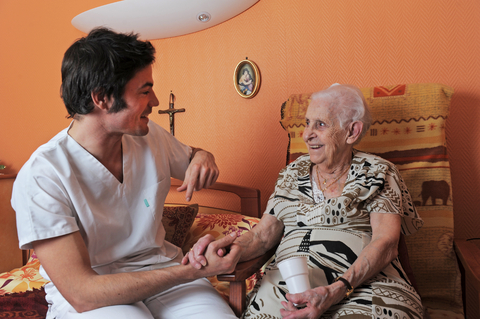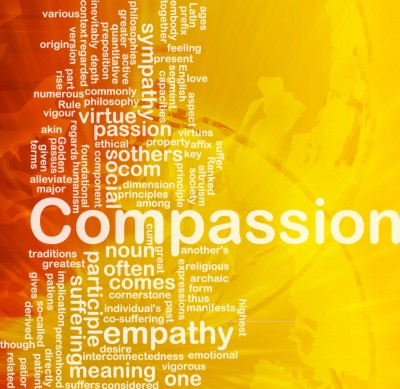There’s an expression that’s used in Tibet when one meets a peer or friend, one says, “How’s your good heart?” The notion that one addresses the “good heart” of another is inspiring. Instead of asking how one is “doing,” one addresses how the other is “being.” Inherent within this greeting is the acknowledgment that another has within themselves a good heart, a heart of compassion.
Compassion as it relates to meditation has been the focus of previous posts on this site (see below, Related Posts). Within many contemplative traditions, the distinction between, or the separation of meditation and compassion doesn’t exist. To be meditative, one finds within one’s heart the seeds of compassion. And, when one is compassionate, one’s mind is meditative, free from distractions and judgements.
Even to practice meditation, one must learn to be compassionate…with oneself! In a quote that I’ve used before on this site, from the book, Christian Meditation: Experiencing the Presence of God, author James Finley expresses poignantly why compassion is a necessary aspect of learning to meditate. He writes:
Our feelings of impatience and frustration with ourselves in meditation are certainly understandable, especially when they persist in spite of our best efforts to overcome them. But as we sit in meditation we can begin to recognize the subtle violence inherent in our impatience with ourselves. As our awareness and understanding of our limitations in meditation continue to deepen, we begin to gain greater insight into what is happening. We realize we are catching ourselves in the act of perpetuating violence towards our wandering mind, our wayward will, or our sleepiness—in short, toward those very aspects of our self that need to be loved the most. We realize that to stop meditating simply because we feel we are not good at it amounts to abandoning the very aspects of our self that need patience and loving encouragement. We see that the whole venture in meditation is going to be a rough ride unless we can learn not to invade and abandon ourselves in response to all the ways in which meditation exposes our limitations and shortcomings. It is precisely at this point that we begin to appreciate the liberating power of compassion.[i]
Working with this view in mind, one could almost say that meditation fosters compassion. Once we’ve considered this possibility, we can take it a step further and investigate whether our being “meditative” in the present moment, when we’re greeting another for example, can help us to see another in a more compassionate manner. And it this is the case, then wouldn’t it also follow that we would recognize within another the good heart that we find within ourselves when we embody a meditative, contemplative approach to our daily life. If this is the case, this results in the recognition that all of life, all circumstances present to us the opportunity to practice meditation and to be compassionate. Wow! Seen in this way, it all makes sense; why not make each moment an opportunity to not only practice meditation but to learn compassion as well?!!
So, how is your good heart?
Share your comments. Let me and others know what situations you find yourself in when through using presence in the moment, you find yourself engaged in the practice of a compassionate heart as well. And, as always, please feel free to contact me if you’d like to see additional content or other discussions on this site.
For more information on how to meditate, exercises in working with the breath, and other nifty stuff, please see the Related Posts below. Also, don’t forget to download the free ebook, Can Meditation Change the Way that You View Your World?, for help with getting started in you meditation practice.
Also, stay tuned for a new ebook coming soon; How to Work with the Four Distractions to Meditation.
NEW – this site has a new page, Meditation Resources, where you can find articles, MP3 tracks for downloading, and videos on the subject of meditation.
[i] Finley, James. Christian Meditation. San Francisco: Harper, 2004, pg. 279.





I so appreciate the good heart expression. What a kind way to meet another right where they are. Tahnk you Jerome. I am taking this into my everyday practice. ANd will post agian all the findings
Jaz
Hey Jaz – Thank you for your heartfelt comment. I’m glad that I was able to provide you with something that you can use in your everyday practice – yay! Take care. Jerome